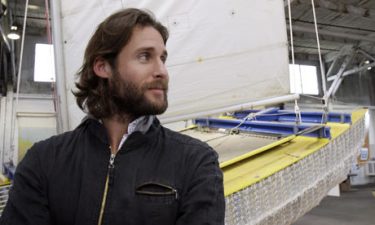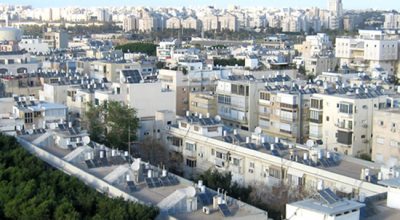 Turkey’s prime minister has announced a plan to build a second waterway through Istanbul, just west of the existing Bosphorus Strait.
Turkey’s prime minister has announced a plan to build a second waterway through Istanbul, just west of the existing Bosphorus Strait.
As Turkey’s June parliamentary elections draw nearer, Turkish Prime Minister Recep Tayyip Erdoğan has unveiled what he calls “the biggest project of the century”: a canal from the Black Sea to the Marmara Sea. The seas are already connected by the Bosphorus Strait, which divides the city of Istanbul between two peninsulas and marks the border between European Turkey and Anatolian Turkey. Currently, some 150 ships pass through the Bosphorus each day, with dozens more queued up and waiting on either end. In Erdoğan’s vision, most of this traffic would be diverted to the canal, and the Bosphorus would be reserved for aquatic sports and city transportation, “like in the old days.” Erdoğan did not give an estimate of the cost, but analysts put it at $40 billion. The project is supposed to begin in 2014.
A triumph of city planning? Not quite, according to several prominent environmentalists and architects.
Although Erdoğan pitched the project as a “project of the enviroment… a project to preserve the nature, sea, water resources, green areas, the flora and fauna of Istanbul and its surroundings,” it’s hard to see how the construction of such an enormous canal could be positive for the surrounding environment.
The canal will be 25 meters deep, 150 meters wide at its surface, and 40 to 50 kilometers long, according to Erdoğan; about half the length of the Panama Canal. Though the exact location of the canal is still undisclosed, it will inevitably cut through or very close to the 5500-hectare Belgrade forest, a sprawling woodland on Istanbul’s European side, northwest of the city proper.
A parcel of new developments are planned in conjunction with the canal. Meeting centers, exhibition halls, sports facilities, housing, and Turkey’s largest airport are also slated for construction on the western outskirts of Istanbul. In light of the government’s habit to prioritize economic development over environmental welfare, as with the destructive hydropower dam projects it is pursuing throughout the country or its lax regulation of fossil fuel power plants near residential areas, many environmentalists are urging a closer look at the canal plan.
“We are utterly concerned and we have doubts about this situation,” Greenpeace Mediterranean Campaigns Head Hilal Atıcı told Bianet. “What kind of ecologic effect is this use of natural resources going to create? Has any research been done on the effects on the ecologic system while they planned this project?”
Others are particularly concerned about how the canal will affect the area around the shore of the Black Sea, which hosts a delicate ecosystem that has already been damaged by overfishing and pollution for the past 50 years.
“This area will surely be affected,” Oğuz Öztuzcu, President of the Istanbul Association of Freelance Architects, told Bianet.
“The entry from the Black Sea leaves a question mark. This is the catchment area of Istanbul’s forests and waters. This area will surely be affected. Is this to be taken under control? This is unknown. [Erdoğan] has not got any plans. We have no information where it is going to pass and what exactly is going to be done.”
Istanbul already has a poor sustainability record among Turkey’s cities, according to a recent survey. Unfortunately, it seems Kanal Istanbul will only reinforce that.
:: Bianet
Read more about Turkey’s environmental policy record:
Major Turkish Cities Fail Sustainability Survey
Hydropower Could Meet More of Turkey’s Energy Demand — But At What Cost?
“Anatolia Won’t Be Blackened” Declare Turkish Anti-Fossil Fuel Groups
Image via Collapser



